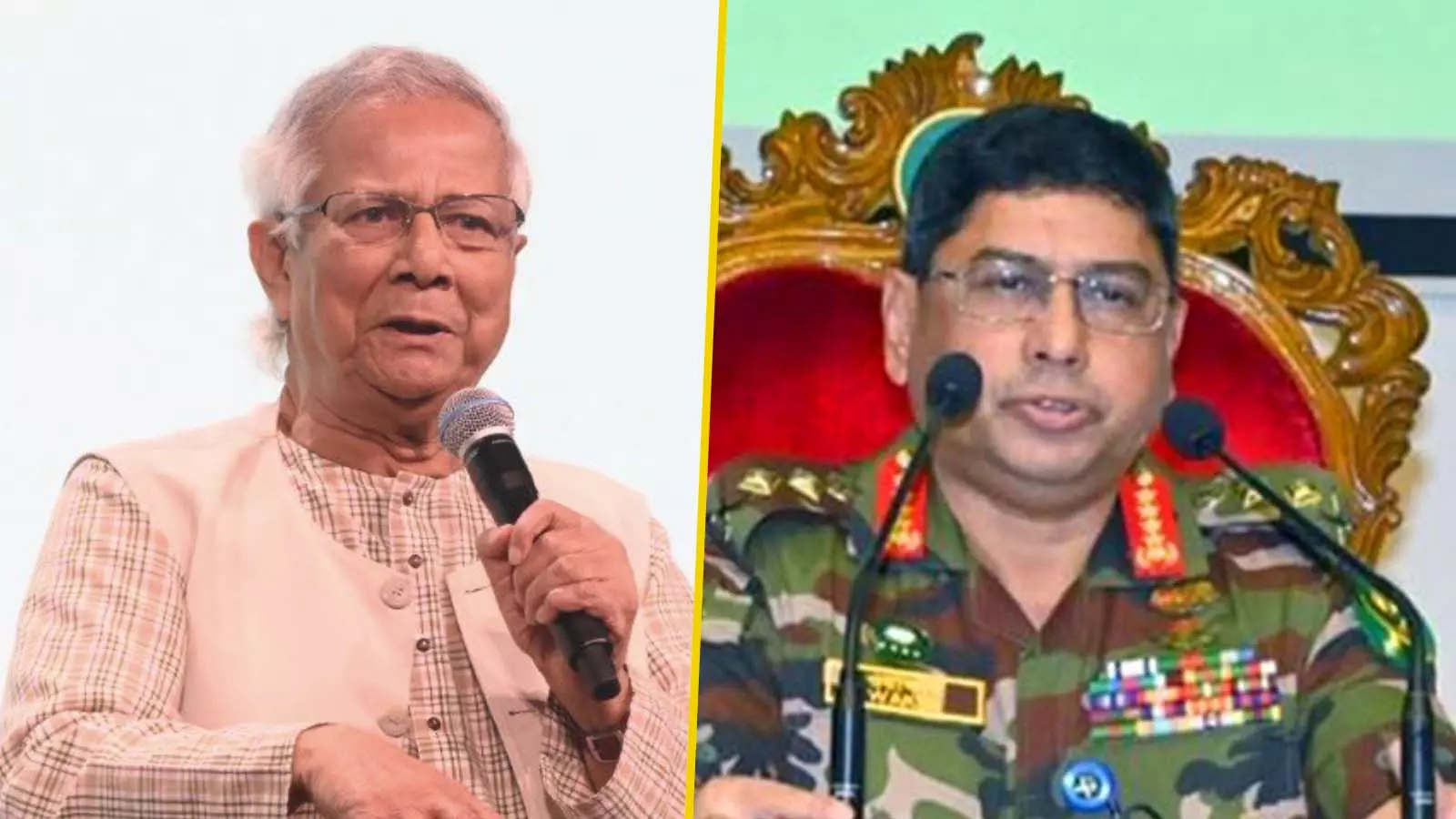
- Home
- India
- World
- Premium
- THE FEDERAL SPECIAL
- Analysis
- States
- Perspective
- Videos
- Sports
- Education
- Entertainment
- Elections
- Features
- Health
- Business
- Series
- In memoriam: Sheikh Mujibur Rahman
- Bishnoi's Men
- NEET TANGLE
- Economy Series
- Earth Day
- Kashmir’s Frozen Turbulence
- India@75
- The legend of Ramjanmabhoomi
- Liberalisation@30
- How to tame a dragon
- Celebrating biodiversity
- Farm Matters
- 50 days of solitude
- Bringing Migrants Home
- Budget 2020
- Jharkhand Votes
- The Federal Investigates
- The Federal Impact
- Vanishing Sand
- Gandhi @ 150
- Andhra Today
- Field report
- Operation Gulmarg
- Pandemic @1 Mn in India
- The Federal Year-End
- The Zero Year
- Science
- Brand studio
- Newsletter
- Elections 2024
- Events
- Home
- IndiaIndia
- World
- Analysis
- StatesStates
- PerspectivePerspective
- VideosVideos
- Sports
- Education
- Entertainment
- ElectionsElections
- Features
- Health
- BusinessBusiness
- Premium
- Loading...
Premium - Events

Yunus coterie pushes anti-India line as Pakistan secures submarine, intelligence access in Bangladesh
One of the close confidantes of Bangladesh's interim government's Chief Adviser, Muhammad Yunus, Major General Fazlur Rahman (retd), has brazenly suggested that if India were to become involved in a war with Pakistan, Bangladesh should launch a military offensive to take over India's North East.
Rahman was picked by Yunus to head an inquiry commission to investigate the 2009 mutiny in the Bangladesh Rifles (BDR) that led to the massacre of many military officers heading the border guard force. Rahman, as BDR chief in 2001, had provoked clashes with India's Border Security Force (BSF) at Pyrdiwah on Meghalaya's border with Bangladesh. He is known to be part of a cabal of fundamentalist former military officers who are bitterly anti-Indian and brazenly pro-Pakistan.
Pakistan's growing military ties
Acting on the advice of this cabal, Muhammad Yunus has moved decisively to bolster military-to-military ties with Pakistan.
In October and November, four high-level Pakistani military delegations visited Bangladesh after similar visits by Bangladeshi military delegations to Pakistan earlier in the year. From October 6 to October 9, Lieutenant General Tabassum Habib, Pakistan's Director General of the Joint Staff, led a high-level military delegation to Dhaka and met with senior Bangladeshi military and intelligence officials to discuss intelligence sharing and security cooperation.
Also Read: Pakistan-Bangladesh axis emerges as India falls out of Dhaka's favour
It was immediately followed by a delegation meeting visit October 24 and 28. The delegation was led by General Sahir Shamshad Mirza, Chairman Joint Chiefs of Staff Committee. He is the senior-most Pakistani military officer to visit Bangladesh in decades. During his visit, he met Yunus, Army Chief General Waker-Uz-Zaman, and the navy and air force chiefs, discussing trade, investment, and defence collaboration.
Then, between November 8 and November 12, Pakistan Navy Chief Admiral Naveed Ashraf's visit to Bangladesh was materialised. The visit not only marked the highest-level bilateral talks but also witnessed significant security arrangements between the two countries. According to sources, the Pakistan Navy had requested Bangladesh for berthing (and refuel-refit) facilities for its submarines at Pekua, a new naval base developed for the Bangladesh Navy in Chittagong. This is Pakistan Navy's renewed interest in the Bay of Bengal, the first since the 1971 Indo-Pakistani War.
Another top military delegation led by Lt-Gen Shakir Ullah Khattak, now Chairman of Pakistan's Heavy Industries Corporation, is visiting Bangladesh to explore defence production deals with Bangladesh. Khatak was the Director General (Analysis) at Pakistan's Inter Services Intelligence (ISI) and the GOC of the 7th Army Division.
Areas of agreement
During these two visits, agreements were achieved in four key areas --
* Intelligence cooperation, to finalise the modalities of which another ISI team visited Dhaka to discuss with DGFI specifics of joint committees to share intelligence, even assets
* Training of Bangladeshi military personnel by Pakistani instructors and sending more Bangladeshi officers to Pakistan military academies for command courses at various levels
* More joint exercises involving the army, navy and air force
* Increasing procurement of military equipment from Pakistan for the Bangladesh armed forces, especially Chinese-designed hardware that is manufactured in Pakistan
Also Read: A theatre of justice: Why the Sheikh Hasina verdict fails the law
One high-level source in the Bangladesh Defence Ministry said both sides had started exploring the possibility of a treaty like the one Pakistan recently signed with Saudi Arabia -- one that will provide Bangladesh with the benefit of Pakistan's nuclear shield. The source said Yunus is encouraged in this direction by his close friends in the US administration, who also encouraged the Pakistan-Saudi defence treaty despite Israeli misgivings.
The covert action threat
If such a treaty were to materialise, the Indian military would need to worry about a two-front conventional war threat in the future. However, while that may not be an immediate possibility, Indian security planners will have to reckon with the possibility of a two-front covert-action threat from non-state actors. Pakistan-backed Islamist terror groups attacking both military and non-military targets in East and Northeast India are an immediate possibility, an imminent threat that cannot be wished away.
Every Pakistani military delegation visiting Bangladesh in recent months had a few ISI officers known to be operationally involved in promoting terror activities against India in the Kashmir-Punjab sector.
Also Read: Hundreds of Bangladeshis stopped at Hakimpur trying to cross border; is SIR the reason?
They had secret meetings with some retired Bangladeshi military officers who maintain close links with Islamist radical groups. These meetings had been followed by Yunus clearing the proposal to raise a National Armed Reserve, which is a cover for raising a government-funded Islamist militia.
This is the brainchild of retired Brigadier Abdullahil Aman Azmi, son of former Jamaat-e-Islami emir Gholam Azam, who was sacked from service and interned for anti-national activities during Sheikh Hasina's tenure.
Islamist radicals let off
Providing weapons training to thousands of young radicalised madrassa-educated Muslim youth may be the first stage of raising Bangladeshi terror modules that will either operate as part of Pakistan-based terror groups like Lashkar-e-Tayyiba (LeT) or join Bangladeshi radical groups who have close links with Pakistani terror groups.
The Yunus administration has so far released hundreds of hardcore Bangladeshi Islamist militants like Ansarullah Bangla team's chief Jashimuddin Rahmani, who enjoys a close rapport with Pakistani jihadi tanzims like LeT and JeM. More importantly, top terror masterminds from Pakistan have frequently visited Bangladesh, obviously to open a second front of terror in India's East and Northeast.
Also Read: Hasina verdict | Govt's PR exercise to malign Awami League: Ex-minister Chowdhury
A close associate of LeT founder Hafiz Saeed has twice visited Bangladesh - first in February and then in October this year -- and spent much time in eight border districts, including Rajshahi, Chapainawabganj and Rangpur.
Ibtisam Elahi Zaheer, General Secretary of Pakistan's Markazi Jamiat Ahl-e-Hadith and a long-time ally of the UN-designated terrorist, Hafiz Saeed, has also delivered inflammatory speeches and networked with local radical elements during a Salafi conference.
The Rohingya connection
Indian intelligence has also found a sharp rise in activities of Pakistani intelligence officials and terrorist elements in the Rohingya refugee camps in Bangladesh


